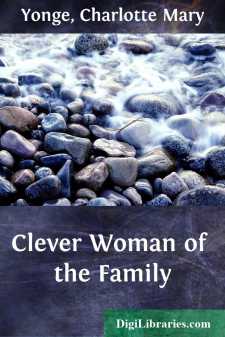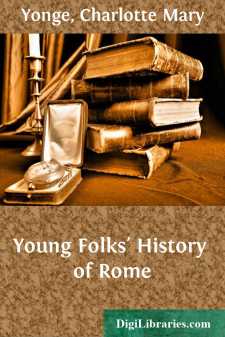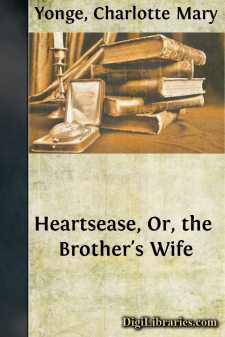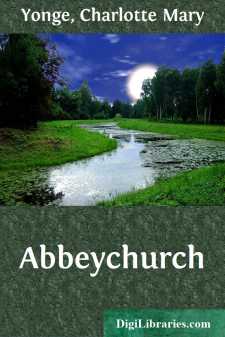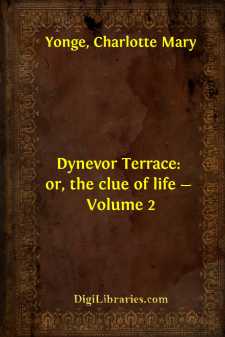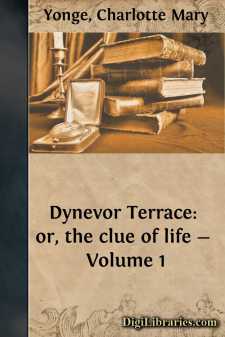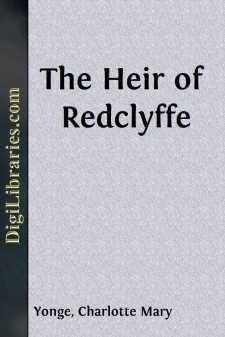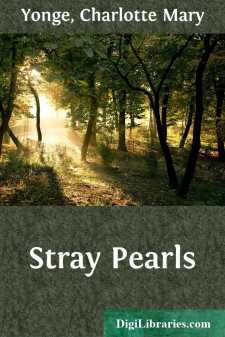Categories
- Antiques & Collectibles 13
- Architecture 36
- Art 48
- Bibles 22
- Biography & Autobiography 813
- Body, Mind & Spirit 142
- Business & Economics 28
- Children's Books 17
- Children's Fiction 14
- Computers 4
- Cooking 94
- Crafts & Hobbies 4
- Drama 346
- Education 46
- Family & Relationships 57
- Fiction 11829
- Games 19
- Gardening 17
- Health & Fitness 34
- History 1377
- House & Home 1
- Humor 147
- Juvenile Fiction 1873
- Juvenile Nonfiction 202
- Language Arts & Disciplines 88
- Law 16
- Literary Collections 686
- Literary Criticism 179
- Mathematics 13
- Medical 41
- Music 40
- Nature 179
- Non-Classifiable 1768
- Performing Arts 7
- Periodicals 1453
- Philosophy 64
- Photography 2
- Poetry 896
- Political Science 203
- Psychology 42
- Reference 154
- Religion 513
- Science 126
- Self-Help 84
- Social Science 81
- Sports & Recreation 34
- Study Aids 3
- Technology & Engineering 59
- Transportation 23
- Travel 463
- True Crime 29
Charlotte Mary Yonge
Charlotte Mary Yonge (1823-1901) was an English novelist renowned for her extensive literary output, particularly her works for children and young adults. Influenced by the Oxford Movement, her writing often reflected strong Anglican religious themes and Victorian moral values. Among her most famous works is "The Heir of Redclyffe" (1853), which achieved great popularity in the 19th century.
Author's Books:
Sort by:
CHAPTER I. IN SEARCH OF A MISSION "Thou didst refuse the daily roundOf useful, patient love,And longedst for some great empriseThy spirit high to prove."—C. M. N. "Che mi sedea con l'antica Rachele."—DANTE. "It is very kind in the dear mother." "But—what, Rachel? Don't you like it! She so enjoyed choosing it for you." "Oh yes, it is a perfect thing in...
more...
CHAPTER I. ITALY. I am going to tell you next about the most famous nation in the world. Going westward from Greece another peninsula stretches down into the Mediterranean. The Apennine Mountains run like a limb stretching out of the Alps to the south eastward, and on them seems formed that land, shaped somewhat like a leg, which is called Italy. Round the streams that flowed down from these hills,...
more...
CHAPTER 1 There are none of England's daughters that bear a prouder presence. And a kingly blood sends glances up, her princely eye to trouble,And the shadow of a monarch's crown is softened in her hair. —ELIZABETH BARRETT BROWNING The sun shone slanting over a spacious park, the undulating ground here turning a broad lawn towards the beams that silvered every blade of grass; there, curving...
more...
CHAPTER I. One summer afternoon, Helen Woodbourne returned from her daily walk with her sisters, and immediately repaired to the school-room, in order to put the finishing touches to a drawing, with which she had been engaged during the greater part of the morning. She had not been long established there, before her sister Katherine came in, and, taking her favourite station, leaning against the window...
more...
CHAPTER I. One single flash of glad surpriseJust glanced from Isabel's dark eyes,Then vanished in the blush of shameThat as its penance instant came—'O thought unworthy of my race!' The Lord of the Isles. As little recked Fitzjocelyn of the murmurs which he had provoked, as he guessed the true secret of his victory. In his eyes, it was the triumph of...
more...
CHAPTER I. Farewell rewards and fairies,Good housewives now may say,For now foul sluts in dairiesMay fare as well as they. BP. CORBET. An ancient leafless stump of a horse-chesnut stood in the middle of a dusty field, bordered on the south side by a row of houses of some pretension. Against this stump, a pretty delicate fair girl of seventeen, whose short lilac sleeves revealed...
more...
CHAPTER I. A SYLLABUB PARTY. Oft had I shadowed such a groupOf beauties that were bornIn teacup times of hood and hoop,And when the patch was worn;And legs and arms with love-knots gay.About me leaped and laughedThe modish Cupid of the day,And shrilled his tinselled shaft.—Tennyson. If times differ, human nature and national character vary but little; and thus, in looking back on former times, we are...
more...
CHAPTER 1 In such pursuits if wisdom lies,Who, Laura, can thy taste despise?—GAY The drawing-room of Hollywell House was one of the favoured apartments, where a peculiar air of home seems to reside, whether seen in the middle of summer, all its large windows open to the garden, or, as when our story commences, its bright fire and stands of fragrant green-house plants contrasted with the wintry fog...
more...
No one can be more aware than the author that the construction of this tale is defective. The state of French society, and the strange scenes of the Fronde, beguiled me into a tale which has become rather a family record than a novel. Formerly the Muse of the historical romance was an independent and arbitrary personage, who could compress time, resuscitate the dead, give mighty deeds to imaginary...
more...
CHAPTER I. On the afternoon of a warm day in the end of July, an open carriage was waiting in front of the painted toy-looking building which served as the railway station of Teignmouth. The fine bay horses stood patiently enduring the attacks of hosts of winged foes, too well-behaved to express their annoyance otherwise than by twitchings of their sleek shining skins, but duly grateful to the...
more...


